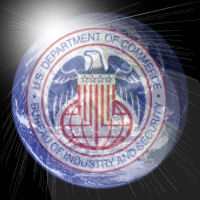 This EETimes story, which discusses some of the litigation woes of Altmel disclosed by the company in its SEC filings, mentions one lawsuit that will be of particular interest to the export community.
This EETimes story, which discusses some of the litigation woes of Altmel disclosed by the company in its SEC filings, mentions one lawsuit that will be of particular interest to the export community.
On June 9, [Nucleus Electronics Ltd. (Hong Kong)] NEHK separately sued Atmel in Santa Clara County Superior Court, alleging that Atmel’s suspension of shipments to the distributor following its appearance on the Dept. of Commerce, Bureau of Industry and Security’s Entity List breached the companies’ distributor agreement. NEHK also alleges libel and other charges against Atmel and is seeking damages of more than $10 million, Atmel said.
NEHK affiliate, TLG Electronics, also in Hong Kong, was added to the BIS Entity List in September 2008 as part of a group of foreign companies that BIS said it had intelligence suggesting were involved in the acquisition and sale of electronic components being incorporated into improvised explosive devices (IEDs) used against U.S. troops in Iraq.
I haven’t looked at the lawsuit, so I don’t know its theory of liability. Certainly it’s not claiming that the distribution agreement obligated Atmel to break the law and export items to NEHK. Perhaps the law suit claims that Atmel at least had an obligation to seek licenses for shipments to it under the distribution agreement. However, the entry on the Entity List for TLG indicates that BIS licensing policy for proposed exports to TLG will be a presumption of denial. This, I think, pretty much relieved Atmel of applying for licenses that it would never get.
Perhaps the argument is that the listing of TLG didn’t justify stopping exports to NEHK. Section 744.11 of the Export Administration Regulations forbids exports to the listed entity and says nothing about related companies. The NEHK lawsuit is, thus, a good occasion to note that distribution agreements with foreign distributors ought to have language permitting immediate termination of the distribution agreement should the distributor or any of its related companies — including parents, subsidiaries and affiliates under common control — are placed on the BIS Entity List.
Even without that language in the distribution agreement, I would be hesitant to export to the affiliate of a listed entity because of the strong probability of diversion of the export to the listed entity.

 Posted by
Posted by  Category:
Category: 

 The Bureau of Industry and Security (“BIS”) just
The Bureau of Industry and Security (“BIS”) just 
 Michigan-based
Michigan-based  According to an
According to an 

